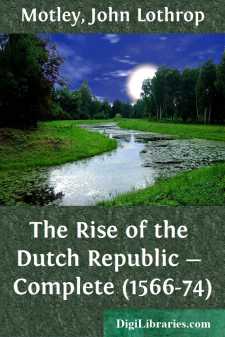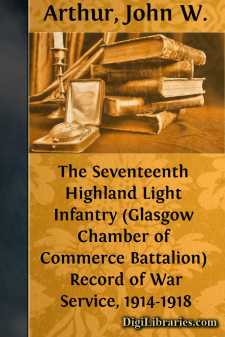History
- Africa 30
- Americas (North Central South West Indies) 50
- Ancient 68
- Asia 58
- Australia & New Zealand 8
- Canada 41
- Caribbean & West Indies 1
- Civilization 20
- Eastern Europe 12
- Europe 310
- Expeditions & Discoveries 60
- General 77
- Historical Geography 1
- Jewish 9
- Latin America 3
- Medieval 8
- Middle East 13
- Military
- Revolutionary 8
- Study & Teaching 5
- United States 353
- Western Europe 56
- World 13
Military Books
Sort by:
Egmont in Flanders, Orange at Antwerp, Horn at Tournay; Hoogstraaten at Mechlin, were exerting themselves to suppress insurrection and to avert ruin. What, meanwhile, was the policy of the government? The secret course pursued both at Brussels and at Madrid may be condensed into the usual formula—dissimulation, procrastination, and again dissimulation. It is at this point necessary to take a rapid...
more...
PREFACE The rise of the Dutch Republic must ever be regarded as one of the leading events of modern times. Without the birth of this great commonwealth, the various historical phenomena of: the sixteenth and following centuries must have either not existed; or have presented themselves under essential modifications.—Itself an organized protest against ecclesiastical tyranny and universal empire, the...
more...
Five centuries of isolation succeed. In the Netherlands, as throughout Europe, a thousand obscure and slender rills are slowly preparing the great stream of universal culture. Five dismal centuries of feudalism: during which period there is little talk of human right, little obedience to divine reason. Rights there are none, only forces; and, in brief, three great forces, gradually arising, developing...
more...
Abdication of Charles resolved upon—Brussels in the sixteenth century—Hall of the palace described—Portraits of prominent individuals present at the ceremony—Formalities of the abdication— Universal emotion—Remarks upon the character and career of Charles —His retirement at Juste. On the twenty-fifth day of October, 1555, the estates of the Netherlands were assembled in the great hall of...
more...
I RAISING THE REGIMENT During the year preceding the outbreak of the Spanish War I was Assistant Secretary of the Navy. While my party was in opposition, I had preached, with all the fervor and zeal I possessed, our duty to intervene in Cuba, and to take this opportunity of driving the Spaniard from the Western World. Now that my party had come to power, I felt it incumbent on me, by word and deed, to...
more...
The 2nd Battalion Royal Dublin Fusiliers is one of the oldest regiments in the service. It was raised in February and March, 1661, to form the garrison of Bombay, which had been ceded to the Crown as part of the dowry of the Infanta of Portugal, on her marriage with King Charles II. It then consisted of four companies, the establishment of each being one captain, one lieutenant, one ensign, two...
more...
by:
John W. Arthur
I.—FORMATION AND HOME TRAINING. THE NATION'S CALL TO ARMS. Great Britain declared war on Germany on August 4th, 1914, and almost immediately the combatant strength of its Regular Army was on service and the great bulk of that gallant force engaged in those fierce actions against odds which marked the early fighting. The War Office was quickly alive to the fact that the Regular Army could not...
more...
by:
S. J. Wilson
CHAPTER I. Holding up the Turk. In September, 1914, the 7th Bn. Manchester Regiment set out for active service in the East in goodly company, for they were a part of the 42nd (East Lancashire) Division, the first territorials to leave these shores during the Great War. After many interesting days spent on garrison duty in the Sudan and Lower Egypt they journeyed to Gallipoli soon after the landing had...
more...
by:
W. C. C. Weetman
INTRODUCTION It is not only a great honour to have been asked to write an introduction to this book, but it is a real pleasure to me to be linked in this manner to a Battalion with which I was so intimately connected for nearly six years and in which I made so many friends, of whom many, alas, have passed the "great divide." The Battalion has been lucky in finding in Capt. Weetman an author...
more...
Introduction. The Salvation Army was founded by William Booth in London, England, in 1865. Previous to this time Mr. Booth had been a successful clergyman in the Methodist Church, and had become widely known throughout England as a revivalist. As time passed, he had become more and more interested in the condition of the un-churched masses, and as his church did not approve of his taking up work among...
more...











